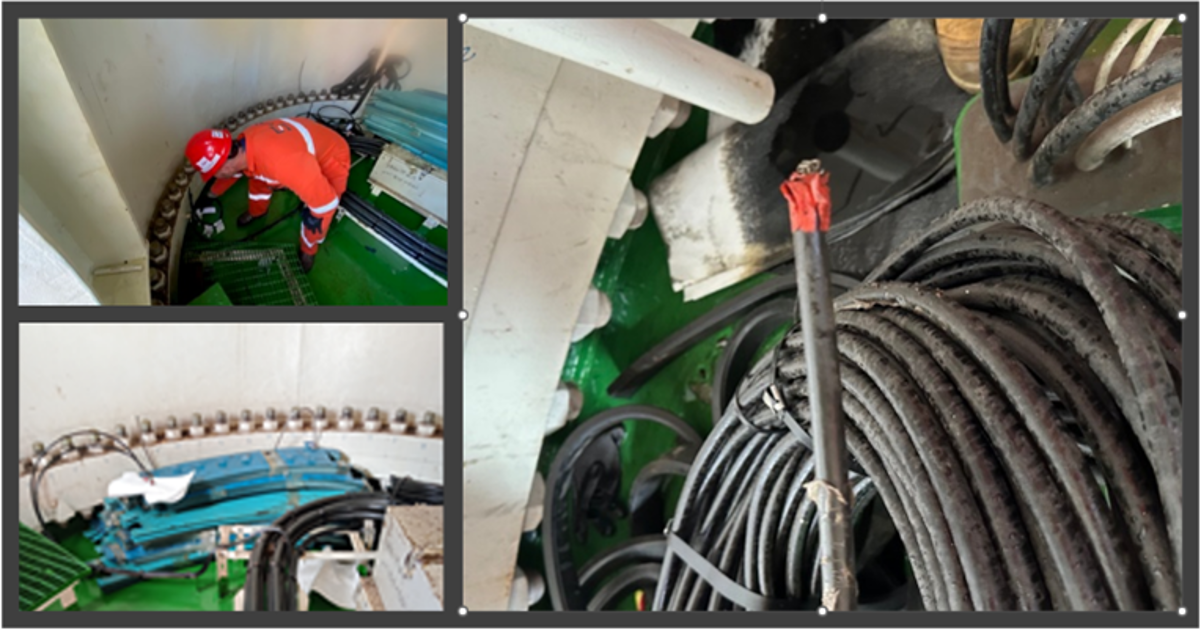Near miss: worker suffers electric shock
- Safety Flash
- Published on 3 July 2025
- Generated on 21 February 2026
- IMCA SF 12/25
- 2 minute read
Jump to:
A member of a vessel crew suffered a mains electric shock when working on a crane pedestal.
What happened?
The incident occurred whilst the worker was performing a small oil clean up on a 50t crane pedestal. The worker suffered the electrical shock when he brushed his hand against one of two disconnected cables coiled on nearby cable trays.
The worker was subsequently visited by the vessel medic and was unharmed.

What went wrong?
One of the two cables was incorrectly terminated, had exposed wires, was incorrectly labelled and was energized with 220V. The cabling had been left in this condition following a yard visit less than a year before. The cable had been intended to be used as a General-Purpose Outlet (GPO).
What was the cause?
There was a failure of the vessel assurance process when the vessel was handed over by the yard following recent yard work, resulting in disconnected cables being left energized.
Actions
- Our member conducted a thorough search following the incident, and ten more disconnected but de-energized cables were identified elsewhere on board.
- Improvement and establishment of a more rigorous control over future electrical commissioning work, preferably the work should be assigned to company electricians rather than third party contractors.
Members may wish to refer to
Related Safety Flashes
-
IMCA SF 24/18
30 October 2018
-
-
IMCA SF 07/09
2 June 2009
-
IMCA SF 19/23
3 August 2023
-
-
IMCA SF 05/13
4 April 2013
IMCA Safety Flashes summarise key safety matters and incidents, allowing lessons to be more easily learnt for the benefit of the entire offshore industry.
The effectiveness of the IMCA Safety Flash system depends on the industry sharing information and so avoiding repeat incidents. Incidents are classified according to IOGP's Life Saving Rules.
All information is anonymised or sanitised, as appropriate, and warnings for graphic content included where possible.
IMCA makes every effort to ensure both the accuracy and reliability of the information shared, but is not be liable for any guidance and/or recommendation and/or statement herein contained.
The information contained in this document does not fulfil or replace any individual's or Member's legal, regulatory or other duties or obligations in respect of their operations. Individuals and Members remain solely responsible for the safe, lawful and proper conduct of their operations.
Share your safety incidents with IMCA online. Sign-up to receive Safety Flashes straight to your email.